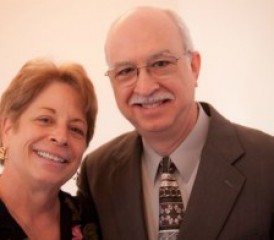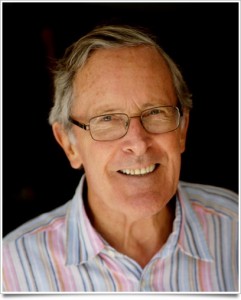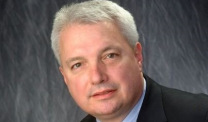Patient Finds Successful Alternative Treatment In The Bahamas
Treatment & DoctorsWritten by Tim Povtak | Edited By Walter Pacheco

Ruth Phillips took her eight-months-to-live, mesothelioma diagnosis from one highly regarded cancer center to another — from Atlanta to New York to Washington, D.C. — and it hardly changed. Doctors painted a picture she refused to accept.
So she gambled. And won.
That was 12 years ago. Today Phillips is thriving, returning home from another workout at a local gymnasium, preparing to make dinner for her husband, not worried about the mesothelioma that should have killed her long ago.
“If I wouldn’t have found that little clinic, I would have been dead the last 11 years,” Phillips said last week by phone from her home in Rome, Georgia. “It worked for me. All the doctors at the big centers back then just sort of apologized to me for getting mesothelioma. They didn’t give me any hope of living another year. I found it somewhere else.”
Taking A Chance on Alternative Mesothelioma Treatment
Phillips found her life-saving treatment at the Immune Augmentative Therapy Centre, which has been operating in the Bahamas since 1977, outside of any oversight or regulation from the United States medical community. Often maligned for its unconventional treatment philosophy, the IAT Clinic also has the unconditional support of those like Phillips.
When Phillips arrived, the clinic was small. The building was old. The paint was chipping. It needed remodeling. By the time she left, in her eyes it looked like a palace.
The theory at IAT is based on fighting cancer by restoring and revitalizing the body’s own immune system, giving it the strength to destroy some cancer cells and prevent others from multiplying. The belief is that the body’s own tumor-fighting system is the best and last line of defense against cancer but only if it is working at its optimal level. The secret is getting the body there.
There is no physically taxing chemotherapy, radiation or radical surgery, all more-accepted ways of treating mesothelioma patients by the mainstream, medical community. There are no oncologists on staff at IAT.
“Some of my friends thought I was crazy, going away from the traditional treatment options in the United States, but based upon what the doctors were telling me, I had nothing to lose,” Phillips said. “And being in the Bahamas isn’t a bad place to be in the winter for cancer treatments.”

Access the latest information on alternative medicine for mesothelioma treatment.
Get Your Free GuidePhillips was diagnosed at age 47 with peritoneal mesothelioma, a cancer of the lining around the abdomen. It was caused by an asbestos exposure traced to her father’s work at Union Carbide and the household products he regularly brought home from the plant. With no known cure for meso, Phillips was given the customary prognosis of six to 12 months of life.
“An oncologist here (in Atlanta) recently told me, ‘I don’t know what you’re doing down there (in Freeport), but whatever it is, keep doing it,’ ” Phillips said. “It was one of those things that the more you looked into it, the more it made sense to me.”
While most oncologists were scoffing at the concept 15 to 20 years ago, some have warmed to the theory in recent years. Many cancer centers in the United States have expanded their alternative medicine options, offering variations to what IAT has been doing for decades.
Immune Augmentative Therapy
The well-respected American Cancer Society now offers a page on its website with details on immune augmentative therapy, but it is a long way from endorsing the Centre in the Bahamas. “Proponents claim IAT is a safe, nontoxic and effective treatment for all types of cancer.”
Yet is also adds: “Available scientific evidence does not support claims that IAT is effective.”

In simple terms, the therapies at IAT involve daily injections of a protein mixture made from the blood of healthy donors, individualized to augment a person’s own immune system. It usually takes eight weeks of daily testing and treatment at the Centre before the perfect balance can be achieved.
When patients leave, they leave with serum for continued injections at home. Phillips returned two or three times each year for checkups for several years afterward. She returned annually during the past couple years.
“We don’t promise we can cure you. Anyone who says they can cure cancer is talking nonsense. We can help a person with mesothelioma. And with some luck, we can help them live longer,” said John Clement, M.D., medical director of the IAT Centre. “Our goal is to get your own immune system to cope with cancer, keep it there, and without any of those terrible side effects that kill you.”
Clement said that his center has treated an estimated 110 cases of mesothelioma over the past 10 years, which represents a small percentage of his cancer patients. Some, like Phillips, have done exceedingly well. Others have not.
“We seem to be able to control the growth of tumors. Rather, we can get a person’s immune system to control them,” he told Asbestos.com. “It doesn’t work all the time, but our results exceed anyone else’s.”
First Denial, Now More Acceptance
Clement has critics who say there are no clinical trials to prove scientifically what he does. The Bahamian government closed down the center in 1985, citing concern over its practices. Although it reopened within a few months, the United States FDA then issued a ban on any import of serum from the IAT Centre.
In the late 1980s there were accusations later proven to be unfounded that the serum had caused isolated cases of HIV and hepatitis B. The center, though, has found some degree of acceptance in recent years.
Clement has a variety of cancer patients on his website who provide testimonials to his treatment methods. He had one mesothelioma patient, a young man in his 20’s, who lived 17 years before he died of complications. He has a handful who lived more than five years.
“The perception has changed slowly. Some oncologists jealously guard their patients. Others now will send patients to us,” Clement said. “A big problem is the drug companies and the FDA are in cahoots. They see us as a threat to their system.”







